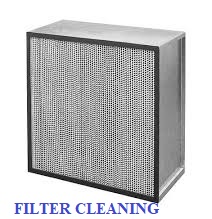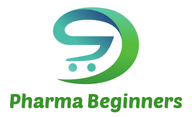Standard Operating Procedure (SOP) for cleaning of Pre-filters, Microvee filters, and cartridge filter of the equipment ( AHU, FDV, Autocoaters, FBD, RLAF, LAF, and Dust Collector ) installed in the Pharmaceutical Plant.
Procedure for Filter Cleaning
1.0 PURPOSE:
-
- The purpose of this SOP is to define the procedure for cleaning Prefilters, Microvee filters, and cartridge filters (i.e. 10µ, 5µ, 3µ) of all the equipment/s.
2.0 SCOPE:
-
- This procedure is applicable for cleaning of Prefilters, Microvee filters, and cartridge filters of the equipment ( AHU, FDV, Autocoaters, FBD, RLAF, LAF, and Dust Collector ) installed in the Pharmaceutical Plant.
3.0 REFERENCES:
-
- SOP No.for Cleaning and Operation of Reverse Laminar Air Flow
4.0 RESPONSIBILITY:
-
- The user department shall be responsible to maintain the filters Cleaning Record and Update the Filter Cleaning Status Label of the respective department.
-
- The engineering department shall be responsible to prepare the filter cleaning schedule and intimate to the concerned department before the planned date.
-
- The engineering department shall be responsible to carry out filter cleaning activity and update filter cleaning status Label and schedule.
-
- The quality Assurance department shall be responsible to ensure that the filter cleaning work is carried out as per define procedure.
5.0 ABBREVIATIONS – FILTER CLEANING:
-
- AHU: Air Handling Unit
-
- FBD: Fluid Bed Dryer
-
- FDV: Force Draft Ventilation
-
- RLAF: Reverse Laminar Air Flow
-
- LAF: Laminar Air Flow
-
- WC: Water Column
-
- DEFINITION:

- DEFINITION:
-
- Prefilter: It is washable filters to control the dust particles of 5 micron and above.
-
- Microvee Filter: It is washable filters to control dust particles of 3 micron and above.
-
- It installed after the prefilters.
6.0 PROCEDURE FOR FILTER CLEANING:
-
- The frequency for Cleaning of Filters (Prefilters, Microvee filters, and cartridge filters). *For AHU, FDV, Autocoaters, Dust Collector, FBD :
-
- 10 Days ± 2 days or
-
- Whenever pressure difference reading is not within limit.
-
- The differential working pressure range of AHU filters is 0 to 15 mm WC and DCU filters is 0 to 135 mm Water Coloum
-
- The frequency for Cleaning of Prefilters for RLAF:
-
- Twice in a month or whenever the pressure difference reading is not within limit. (Differential working pressure range of Reverse Laminar Air Flow filters is 1 to 5 mm)
-
Check and Precaution:
-
- Ensure that no production activity is being performed while carrying out the filter cleaning.
-
- Ensure that the main switch of the respective equipment is put off.
-
- After re-fixing the filters ensure that all safety doors are properly closed.
-
Cleaning Procedure for Prefilters, microvee filters, and cartridge filters:
-
- Affix the label on the respective equipment as “UNDER CLEANING “as per Annexure 1.
-
- Switch off the main power of equipment.
-
- Open the doors and remove dirty filters from the filter housing and keep inside polybag to avoid the spread of powder in the surrounding area.
-
- Properly clean inside the area of equipment and collect any fallen dust on the surface.
-
- We need to bring clean filters near the equipment for the immediate replacement of dirty filters.
-
- Make sure that clean filters to bring in close polybags to avoid contamination.
-
- Take out the cleaned filters from the polybag and fixed their proper position and closed the safety doors.
-
- Remove the “UNDER CLEANING “label from the equipment.
-
- Put ON the emergency switch and main switch of the respective equipment.
-
- Switch on the equipment and ensure any air leakage from the doors. In case of any leakage arrest immediately rectify the leakages.
-
- Transfer dirty filters to filter the cleaning area. Make sure all dirty filters packed in polybags to avoid the spread of powders.
-
-
Put ON the filter cleaning equipment and motor for the water circulation.
-
-
- Keep the filters into the filter’s cleaning tank and clean with dry compressed air in the direction from the cleaned side to the opposite side.
-
- After dry cleaning, clean the filters with potable water.
-
- Dry the filters by applying dry compressed air.
-
- Inspect the filters visually for cleanliness.
-
- Repeat the cleaning if required.
-
- Inspect the filters visually after the cleaning.
-
- If found damaged, replace it with a new equivalent filter and discard the damaged filter.
-
- Cleaned filters put on dryer for drying.
-
- After drying the cleaned filters, filters wrap with cleaned polybag and transfer to the respective area with a label-” Cleaned Filter”.
-
- Update the filter cleaning records, status label, and schedule as per Annexure No.1, 2, 3, 4.
7.0 ANNEXURES – FILTER CLEANING:
Annexure 1: Status Label.
|
STATUS LABEL |
|
UNDER CLEANING Date: Sign: |
Annexure 2: Filters Cleaning Record.
|
Equipment |
Equipment Code | ||||||||||
| Filter Rating (in Micron) | |||||||||||
|
Sr.No |
Cleaning Done On | Next Cleaning Due On | Filter Intactness Ok/Not Ok | Differential Pressure After filter Cleaning (mm WC) | Done By | Checked By | Remarks | ||||
| Pre | Fine | ||||||||||
Annexure 3: Filter Cleaning Status Label.
|
STATUS LABEL |
|
Annexure 4: Filter Cleaning Schedule.
| Department | Engineering | Year | ||||||||||||
| Sr.No | Equipment Name | Equipment Code | Schedule Dates | |||||||||||
| Month → | ||||||||||||||
| P | A | P | A | P | A | |||||||||
*****************************************************END***********************************************


